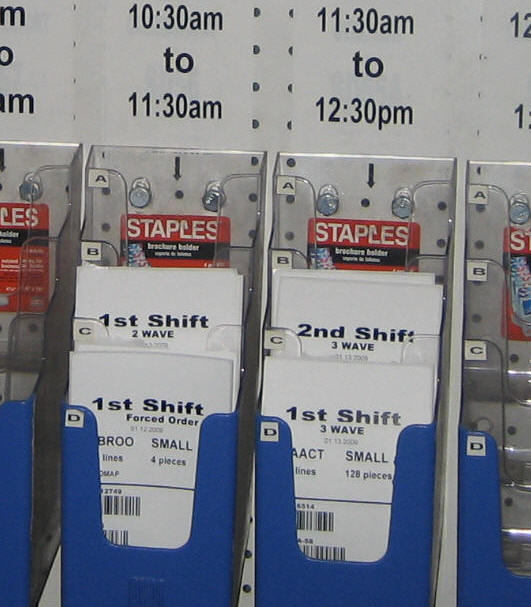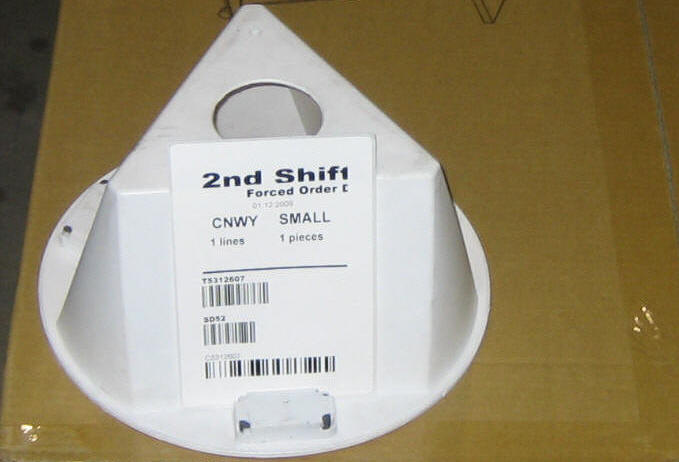Menlo Worldwide Prospers in a “Lean” Environment
Nashville, Tennessee USA Campus Site Visits
March 23, 2009
By
Evan Armstrong
Key Personnel:
Gary Kowalski, Chief Operating Officer
Bob Basset, Vice President of Sales and Marketing
Anthony Oliverio, Senior Director of Operations Strategy
Timothy Sroka, Lean Sensei
Jonathan Coller, Facility Manager
Jerome Wanke, Senior Logistics Manager
Overview
With 2008 revenues topping $1.5 billion and a global workforce of over 6,500, Menlo Worldwide Logistics is a leading U.S.-based third-party logistics provider (3PL). 2007 was a pinnacle year for Menlo. It made acquisitions of Shanghai, China based Chic Logistics and Cougar Logistics in Singapore to position Menlo as a major Asian-Pacific 3PL. In addition, Menlo was selected as the prime contractor for the U.S. Transportation Command’s Defense Transportation Coordination Initiative. The contract was a major win for Menlo over strong competitors and is potentially worth $1.6 billion.
Menlo provides customers 3PL and 4PL services, including dedicated and multi-client warehousing; domestic transportation management on four continents, managed international transportation services; as well as a variety of value-added services including: inventory management, light assembly, kitting, foreign trade zone (FTZ) services, labeling, manufacturing support, pick/pack operations, packaging, service parts management, and reverse logistics. Its key customers include: Canon, Cisco Systems, Diebold, Danfoss, Embraer, Ford, General Motors, Hewlett-Packard, IBM, Navistar International, NCR, Network Appliance, Nike, Nortel, Toyota, and the U.S. Department of Defense.
Menlo has embraced the warehouse campus concept. It has transitioned from a customer-driven dedicated warehouse centric strategy to more flexible multi-client warehouse operations and now has more than 60% of its value-added warehousing operations in multi-client facilities. Campuses and multi-client arrangements allow for improved labor management efficiencies.
Menlo Lean Management Process
Menlo has also taken major steps to implement “Lean” management principals across its organization. “Lean” is a methodology that has grown out of major manufacturing companies and considers the expenditure of resources for any other goal than the creation of value for the end customer to be wasteful. Wastes are identified using a technique called Value Stream Mapping and once identified, are targeted for elimination through process improvements (also known as “Kaizen”).
Menlo has grown its business using a project-by-project approach. Its overall strategy of standardizing Lean management process improvement principles across its organization and then deploying the requisite technology needed by each project fits well into this approach. It is a process driven operating and management style – enabled by appropriate IT applications – versus an IT driven operating environment. Lean warehouse standardization is intended to: institutionalize lean principles and techniques at the floor level where the work is performed, engage and empower hourly staff to make decisions and eliminate waste. It also focuses on increasing training effectiveness, improving productivity and operational throughput, reducing the total cycle time for new project start ups, and in-turn drives increased customer satisfaction levels.
Each Menlo logistics project starts with an analysis of the current state of operations. Then an improved future state, represented by a Value Stream Map, is developed as an operational goal. The current state is then analyzed and wasteful activities are eliminated to drive toward the future state Value Stream Map. Shikumi diagrams and process flow charting techniques are used to model the improvements. Once the operational processes are optimized, standard work instructions are developed for each individual work process.
As operations are deployed and mature, Menlo staff provide valuable input and feedback driving process improvements. In a Lean operating environment, Kaizen events are used to target process improvement areas. Menlo separates its Kaizen events into two types. “Process Kaizen” events focus on rapid process improvements on the logistics execution side to reduce waste and inefficiencies. “Flow Kaizen” events focus on larger network value-stream process improvements. Examples of Process Kaizen events include: increasing percentages of on-time deliveries, shortening order to fill lead-times, and reducing required inventory levels in a warehouse. Flow Kaizen event examples include: coordinating transportation moves between customers to build round-trip truckload moves and expanding the number of warehouse network campus operations to provide flexible workforces to meet customer needs.
In 2008, Menlo estimates it has saved over $8 million through its Lean improvement activities which are detailed in the figure below.
Figure 1 – Menlo’s Lean Results






